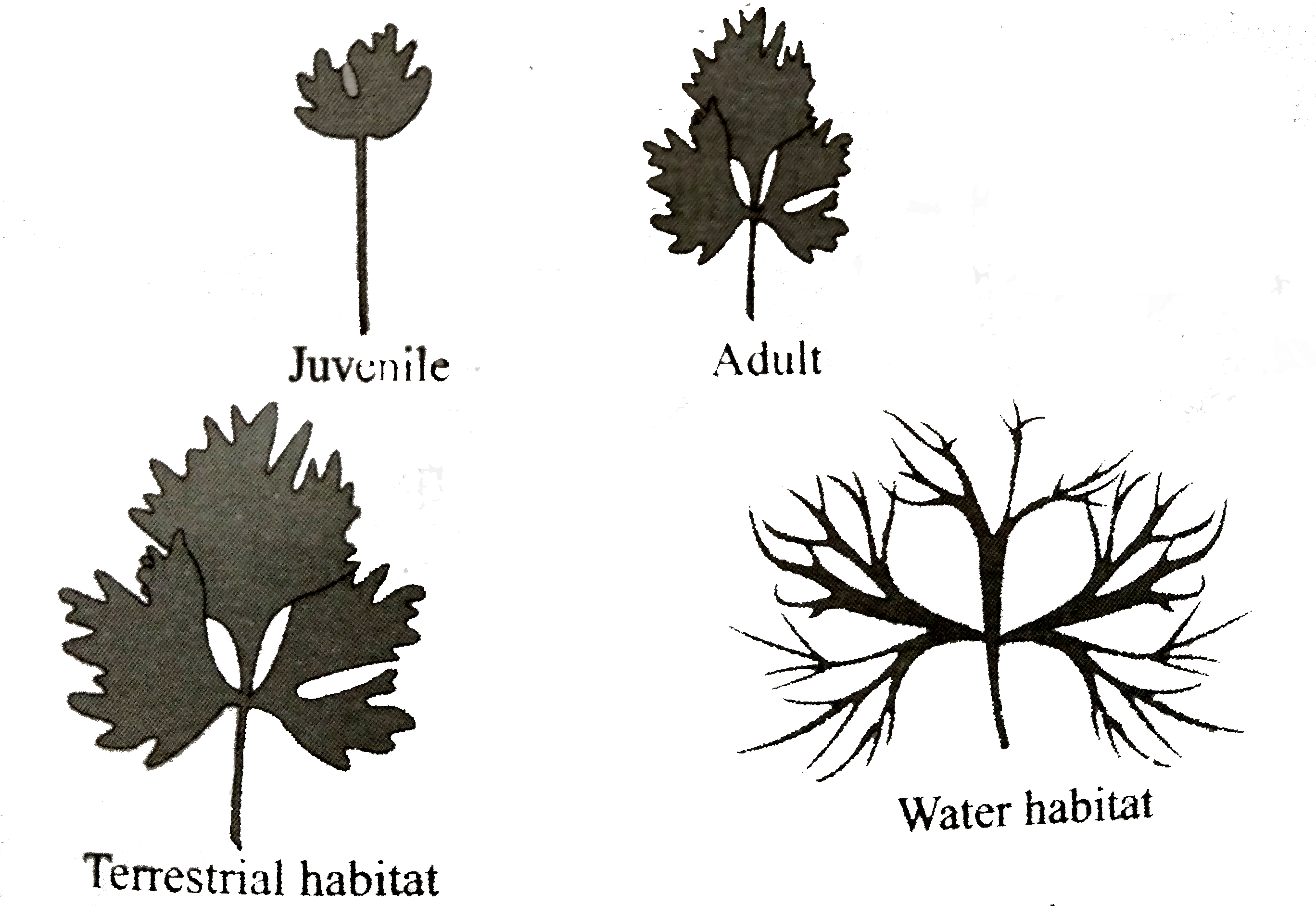Plants follow different pathways in response to environment or phases of life to form different kind of structures. This ability is called
Development
Differentiation
Plasticity
Photoperiodism
The correct Answer is:C
Plants follow different pathways in response to environment or phases of life to form different kind of structures. This ability is called plasticity.
Similar Questions
Plants follow different pathways in response to environmental or phases of life to form different kinds of structures.This ability is called:
View SolutionGo through the following statements
(i) In geometr,ic growth, following mitotic cell division, only one daughter cell con- tinues to divide while the other differen- tiates and mature.
(ii) The ability of plants to follow different pathways in response to environment or phases of life to to.rm different kinds of structures, is called plasticity.
(iii) The mathematical expression for arith- metic growth is Lt=L0+rt while for geo- metric growth, it is W1=W0=W0ert
(iv) The form of growth wherein new cells are always being added to the plant body by the activity of the meristem, is called the open form of growth.
Which of these are correct .View Solution
Knowledge Check
- Question 1 - Select One
Assertion :- Buttercup produces two different kind of leaves within the same plant body.
Reason:- Plants follow different pathways in response to environment or phases of life to form different kinds of structures, due to plasticity.AIf both assertion and reason are true and reason is the correct explanation of assertion.BIf both assertion and reason are true but reason is not the correct explanation of assertion.CIf assertion is true but reason is false.DIf both assertion and reason are false. - Question 2 - Select One
Go through the following statements
(i) In geometr,ic growth, following mitotic cell division, only one daughter cell con- tinues to divide while the other differen- tiates and mature.
(ii) The ability of plants to follow different pathways in response to environment or phases of life to to.rm different kinds of structures, is called plasticity.
(iii) The mathematical expression for arith- metic growth is Lt=L0+rt while for geo- metric growth, it is W1=W0=W0ert
(iv) The form of growth wherein new cells are always being added to the plant body by the activity of the meristem, is called the open form of growth.
Which of these are correct .A(iii) & (iv)B(ii), (iii) & (iv)C(ii) & (iv)DAll are correct - Question 3 - Select One
The study the following :
A) Formation of tracheary elements from the derivatives of cambium
B) Formation of interfascicular cambium and cork cambium from living permanent parenchyma cells.
C) Formation of secondary vascular tissues or cork and secondary cortex from the derivatives of lateral meristems .
D) The ability of plants to follow different pathways in response to the environment or phases of life to form different kinds of structures.
A, B, C and D respectively areADedifferentiation, differentiation, redifferentiation, plasticityBDifferentiation, dedifferentiation, redifferentiation, heterophyllyCDifferentiation, redifferentiation, dedifferentiation, plasticityDDifferentiation, dedifferentiation, redifferentiation, plasticity
The ability of producing differnet kinds of structures at differnet phases of life is called
View SolutionThe ability of plant to follow different pathways and produce different structures in response to environment and phases of life is termed as -
View SolutionThe polymer formed with different monosaccharide is called as
View SolutionDifferent kinds of structures develop in plants in different phase of growth or in response to enviornment. This ability is called_____.
 View Solution
View SolutionDifferent kinds of structures develop in plants in different phase of growth or in response to enviornment. This ability is called_____.
 View Solution
View Solution

